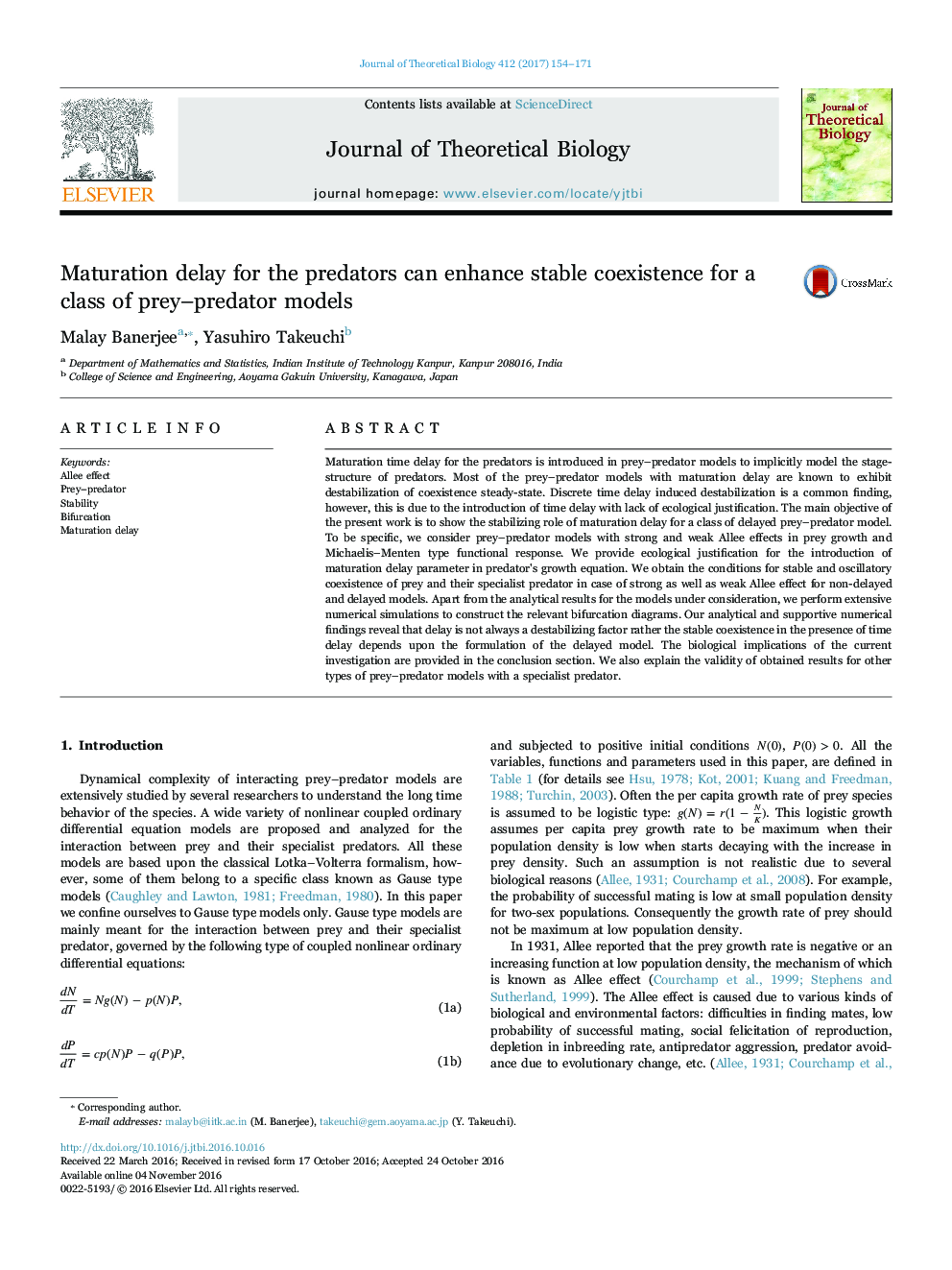| Article ID | Journal | Published Year | Pages | File Type |
|---|---|---|---|---|
| 6368822 | Journal of Theoretical Biology | 2017 | 18 Pages |
â¢Maturation delay effect in predator growth on prey-predator model is considered.â¢The maturation delay cannot destabilize the stable coexistence of prey-predator.â¢The stable coexistence at stationary state and in oscillatory mode are possible.â¢High mortality of juveniles or long maturation time drives predators to extinction.â¢Stabilizing role of maturation delay is independent of functional response.
Maturation time delay for the predators is introduced in prey-predator models to implicitly model the stage-structure of predators. Most of the prey-predator models with maturation delay are known to exhibit destabilization of coexistence steady-state. Discrete time delay induced destabilization is a common finding, however, this is due to the introduction of time delay with lack of ecological justification. The main objective of the present work is to show the stabilizing role of maturation delay for a class of delayed prey-predator model. To be specific, we consider prey-predator models with strong and weak Allee effects in prey growth and Michaelis-Menten type functional response. We provide ecological justification for the introduction of maturation delay parameter in predator's growth equation. We obtain the conditions for stable and oscillatory coexistence of prey and their specialist predator in case of strong as well as weak Allee effect for non-delayed and delayed models. Apart from the analytical results for the models under consideration, we perform extensive numerical simulations to construct the relevant bifurcation diagrams. Our analytical and supportive numerical findings reveal that delay is not always a destabilizing factor rather the stable coexistence in the presence of time delay depends upon the formulation of the delayed model. The biological implications of the current investigation are provided in the conclusion section. We also explain the validity of obtained results for other types of prey-predator models with a specialist predator.
